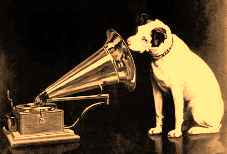


Blessed with a warm, sweet voice, Major Lance was one of the leading figures of Chicago soul during the '60s and the top-selling artist for OKeh Records during the decade. Lance not only had a lovely voice, but his material was excellent. During the height of his success, the majority of his songs were written by Curtis Mayfield and produced by Carl Davis, and the pair developed a smooth, Latin-flavored sound that was punctuated by brass and layered with vocal harmonies, usually from the Impressions. It was urban, uptown soul and while it was considerably less gritty than its Southern counterpart, its breezy rhythms and joyous melodies made songs like "The Monkey Time" and "Um, Um, Um, Um, Um, Um" some of the most popular good-time R&B of its era. Major Lance's career declined significantly after he parted ways with Mayfield and Davis in the late '60s, but his classic OKeh recordings remain some of the best-loved soul music of the decade.
.........................
In 1962, Lance was signed to the revived OKeh Records, based on his connections with Otis Leavill and, especially, Curtis Mayfield, who signed with the Impressions to ABC Records and had hits with his own group. Later that year, Lance recorded his first single, "Delilah," for the label. Like most of the Major's material, the song was written by Mayfield who, along with OKeh president Carl Davis and arranger Johnny Pate, developed a distinctive, Latin-tinged sound for the record, filled with sliding trombones and a light-stepping rhythms in order to distinguish Chicago soul from its counterparts in the South, New York, Detroit, and California. Though "Delilah" wasn't a hit, Lance's second single, "The Monkey Time," was a monster. Released in the summer of 1963, "The Monkey Time" reached number two on the R&B charts and number eight pop, establishing not only Lance as a singer but the revitalized OKeh Records as a pop music force. "Hey Little Girl" was a Top 15 pop and R&B hit later that year, followed by the Top Ten "Um, Um, Um, Um, Um, Um" early in 1964.[allmusic]
Here






























